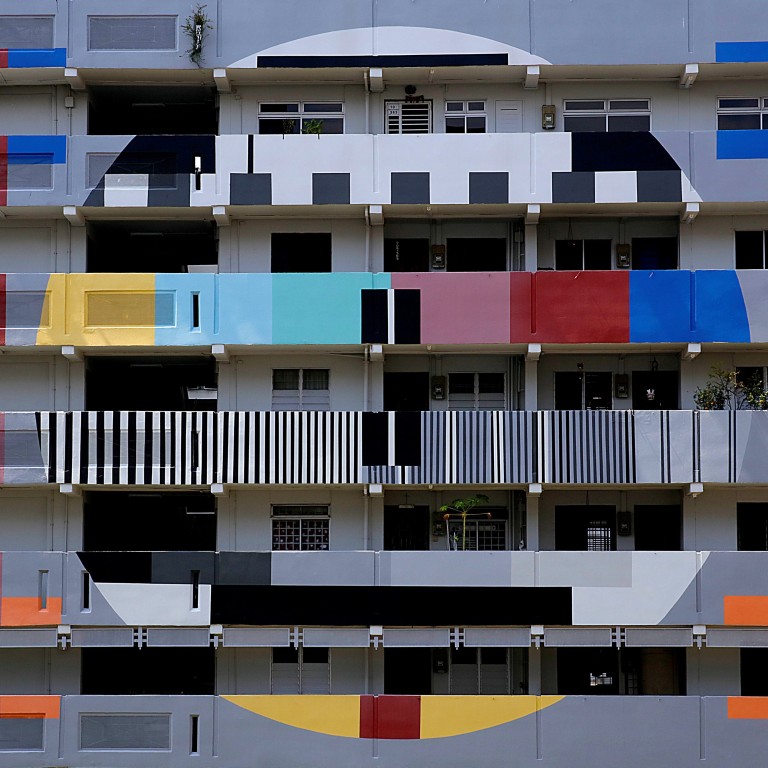
Are Singapore’s 99-year leases and falling prices for older flats about to become an election issue?
- Public housing owners in Singapore fear heavy losses as their leases run out
- But with an election looming, the government will surely step in. Won’t it?
Yang, who is in his 40s and works in the creative industry, said he intended to live in the flat for at least a decade as he and his wife raise their young children. But the flat would then be approaching the midpoint of its lease and the couple fears making a loss if they sell it on the open market then. Past trends show a price increase for the first 20 years, after which resale prices may rise or taper slightly downwards. Prices then drop further as the flats age beyond 40 years.
“After all the renovations, my home should be worth more than S$1 million,” said Yang’s wife. The family is spending more than S$100,000 on the renovations, and if they have to sell at a loss, Yang’s wife would “rather just live in it till I’m old and dead”.
Why Hong Kong cannot copy Singapore’s approach to public housing
The issue of decaying leases for Housing & Development Board flats, which 81 per cent of Singaporeans and permanent residents live in, has become a talking point as the housing stock ages. The government has long said that public housing flats – sold brand new to buyers who can then sell them in the open market after living in the flats for five years – are assets that will grow in value and can be monetised for retirement.
The idea is for older homeowners to downgrade to smaller flats to unlock funds, or move in with their adult children in large, so-called three-generational flats.
As an election approaches – it has to be called by April 2021 – analysts say the government’s role in helping owners of ageing flats will be a hot-button issue, just as housing affordability in general has been in previous campaigns.
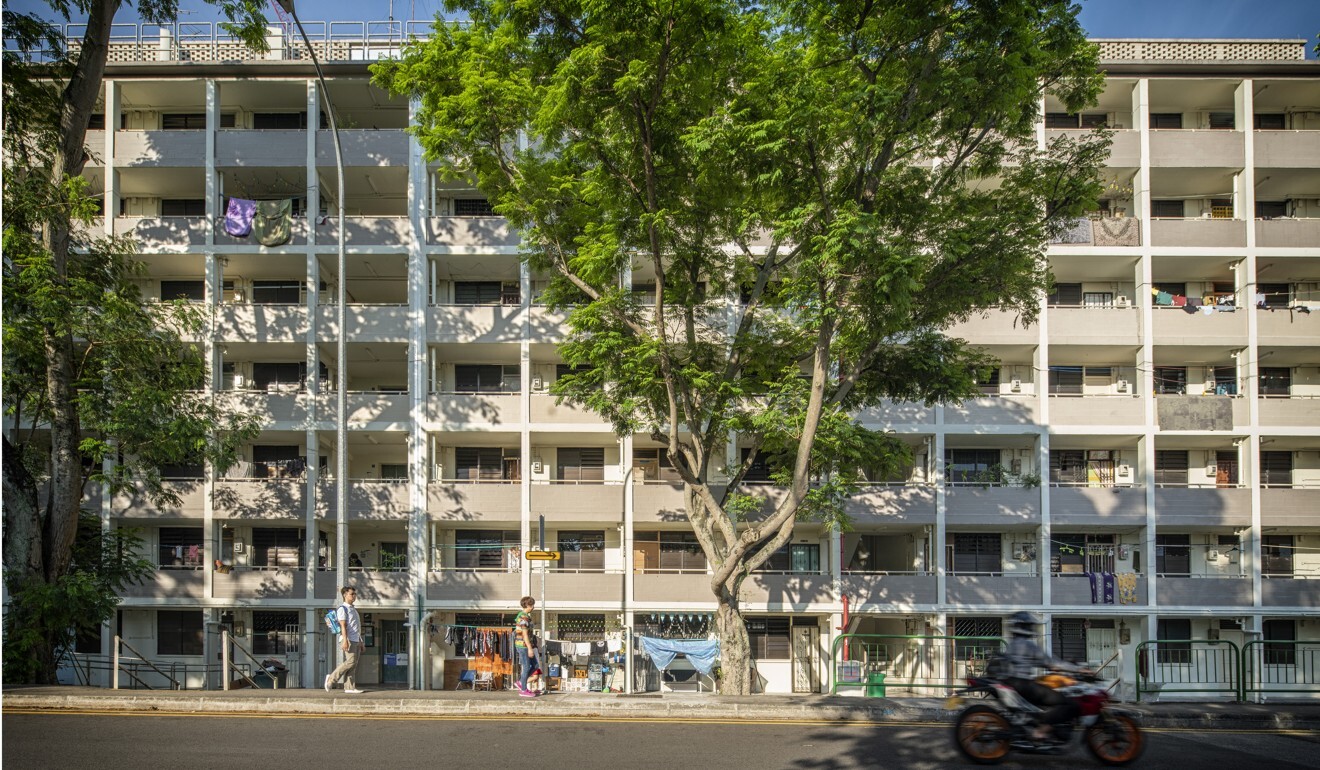
Currently, there is a scheme for flat owners to sell a portion of their remaining lease back to the government if they meet certain criteria. But critics say this Lease Buyback Scheme is not attractive because a large portion of money will be returned to homeowners’ national pension – the Central Provident Fund – instead of being available as cash.
Last week, Finance Minister Heng Swee Keat said during his budget speech that the scheme would be enhanced.
NEST EGG
There has been some confusion over where the governing People’s Action Party stands on the issue of HDB leases.
Three years ago, National Development Minister Lawrence Wong fuelled public anxiety when he said there were no guarantees that aged flats would be upgraded and that flats would be returned to the government without compensation at the end of their 99-year leases.
Since 1995, only about 4 per cent of flats have come under the Selective En-bloc Redevelopment Scheme, under which the government tears down old estates and offers replacement flats to homeowners at subsidised rates while also compensating them for the move.
Wong’s warning was aimed at tempering the buoyant sentiment that saw several second-hand flats in centrally located estates sell for over S$1 million, when new flats in areas farther away from the centre were going for a fifth of the price.
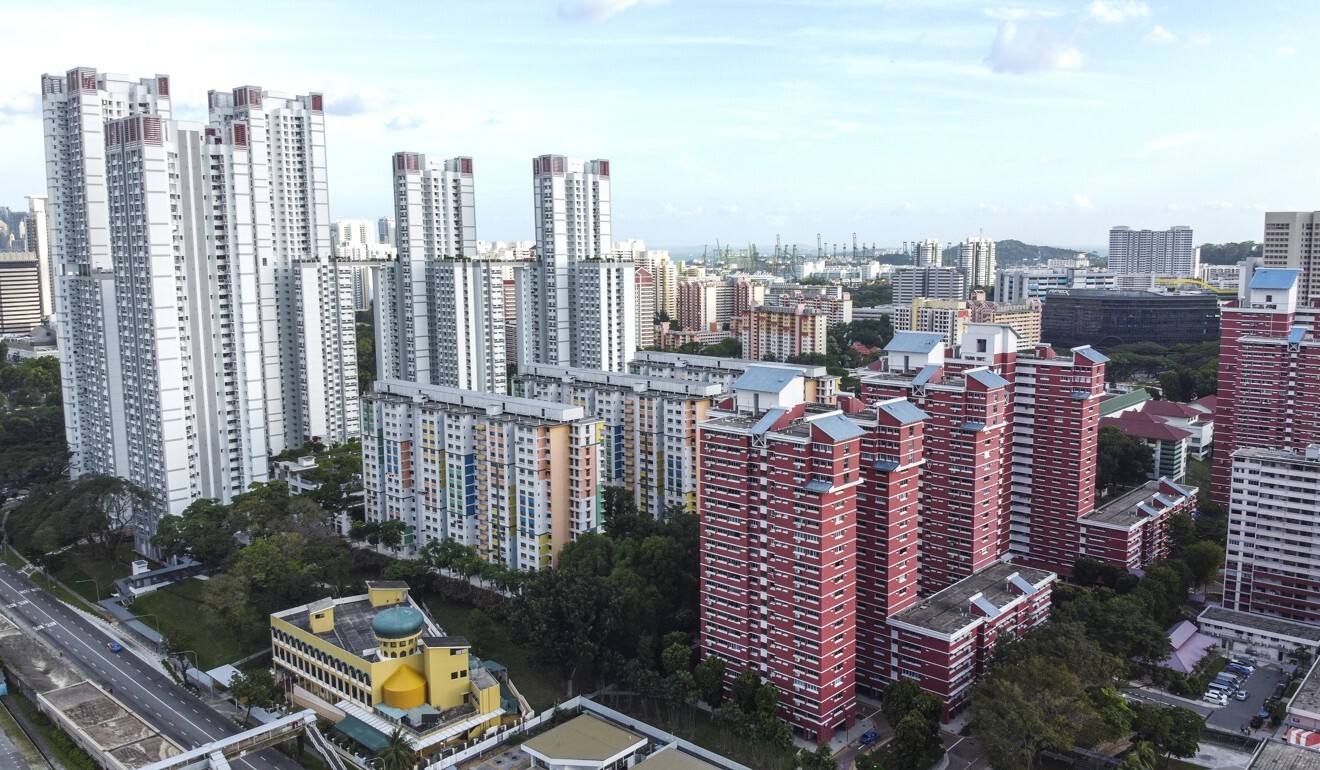
But still, the lease issue was a sensitive one, because public housing was the main material asset of the vast majority of Singaporeans, said political analyst Derek da Cunha.
Said da Cunha: “It would be surprising if the main opposition Workers’ Party (WP) did not remind the voters of Mr Lee’s 2013 remarks, juxtaposing those remarks against the current reality.”
‘Hype, smoke, and hot air’ clouding Singapore real estate
The WP, which is the only opposition party in parliament, holding six of the 88 elected seats, released its recommendations on the issue of decaying leases last November. In a 60-page paper, it said all homeowners with a remaining tenure of 30 years or less should be able to sell their flats to the government. The government could then resell the homes under shorter leases or offer them under WP’s proposed Public Rental Market (PRM) scheme at prices midway between low-income government rental flats and properties offered on the open market.
A day later, a group of public intellectuals offered their own proposal. Housing analyst Ku Swee Yong, former GIC economist Yeoh Lam Keong and architect Tay Kheng Soon urged the government to give flats that hit 99 years a one-time lease top-up of 50 years, and when the flats reach 100 to rebuild them because of structural safety issues, at a cost of S$150 billion to S$200 billion over 100 years.
They also wanted new flats to be sold at cost price of S$150 to S$200 per square foot to keep homes affordable, and have buyers live in them for a minimum of 15 years to reduce speculation within the housing market.
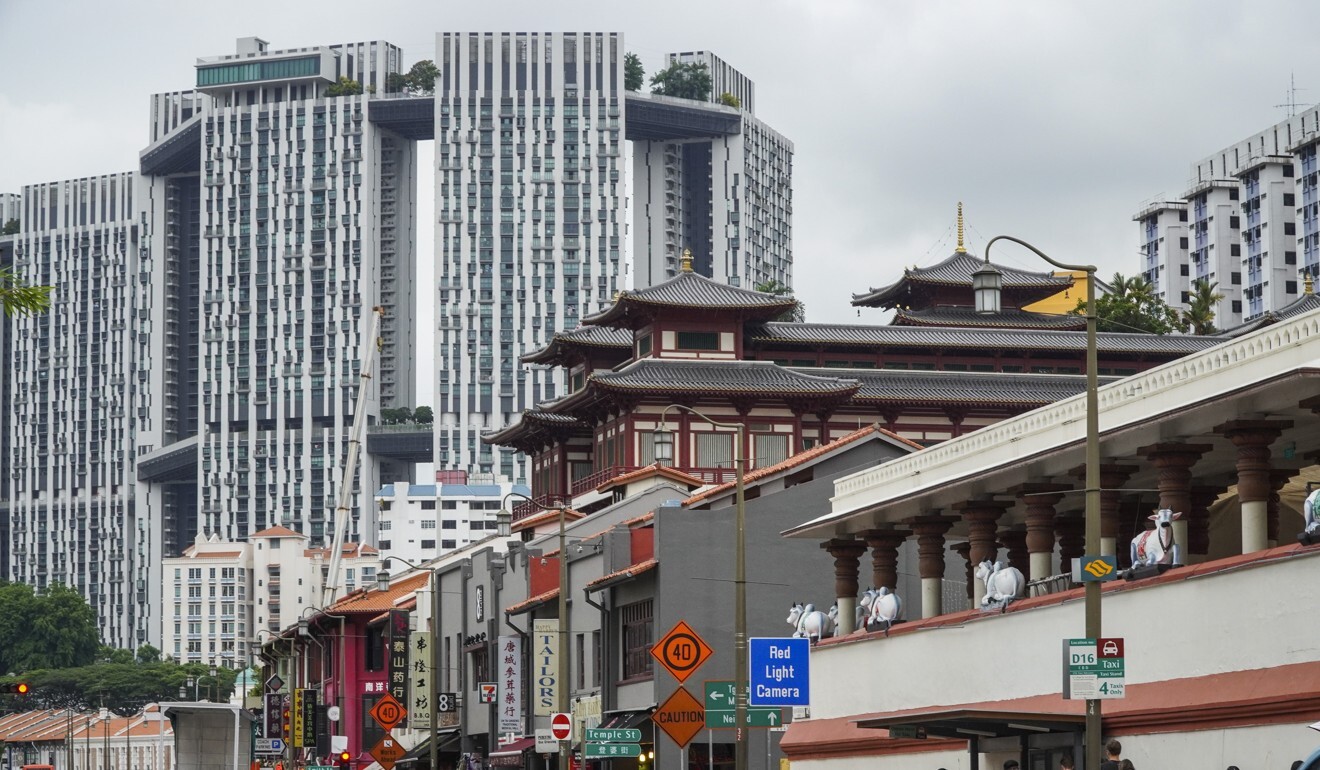
In a blog post on December 16, Wong wrote that the National Development Ministry would consider all such ideas. Wong said it was precisely because Singapore was a land-scarce country that so much of its land was only available for purchase on a leasehold basis – “So that land can be recycled and new flats can be built for future generations,” he wrote.
He said that the Lease Buyback Scheme saw a higher take-up rate in 2019, at 1,500 households, which he saw as “very positive”. Previously, as of October 2018, 3,100 households had used the scheme since it was launched in March 2009.
Other lease-related schemes include one announced by sitting prime minister Lee Hsien Loong in 2018 for owners of 70-year-old flats to vote collectively if they want an en bloc sale of their flats to the government. Details of this Voluntary Early Redevelopment Scheme are still being worked out.
PERFECT STORM
There were also demographic factors to take note of, said Ku, the housing analyst, who pointed out that the majority of public flats were now owned by people from the baby-boomer generation.
When they die, “there will be an excess of resale supply versus young people’s demand for old flats”, he said.
Meanwhile, prices and demand for older flats have also fallen.
At 42-year-old Block 105 in Ang Mo Kio, only two four-room flats, each measuring 92 square metres, were sold in the past year at S$315,000 and S$320,000. Before 2017, when Wong made clear the government’s policy on expiring leases, flats at Block 105 sold for around S$450,000.
In the nearby Block 700B, where lease terms began in 2003 and flats are 90 or 91 square metres, there were five transactions in the same time frame at almost double the price – ranging from S$515,000 to S$655,000.
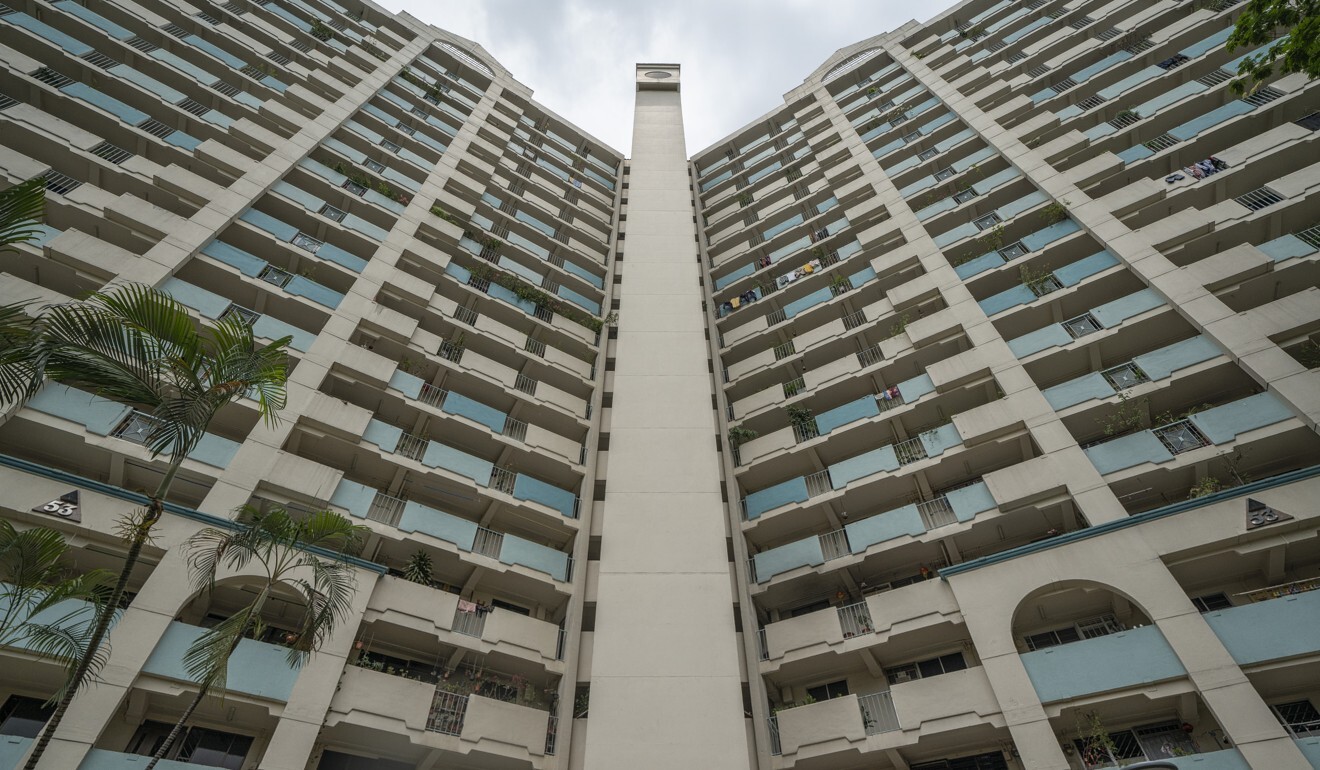
Sing Tien Foo, director of the Institute of Real Estate and Urban Studies at the National University of Singapore, said there could be updates on the Voluntary Early Redevelopment Scheme to refresh flats that hit 70 years of age before the general election came around. A one-time lease top-up, he said, was favoured by the electorate but it would be costly and there needed to be talks on who would bear that cost.
Chua Beng Huat, a sociologist at the National University of Singapore, agreed, saying proposals that focused on extracting value from flats to help people with their retirement were costly. “Poverty alleviation for those in need may be a less expensive solution than any universal scheme for all public housing homeowners,” he said.
Singapore’s worrying trend of homeowners defaulting on mortgages
It remains to be seen how the government will tackle this issue. But expectations are high that it will step in to save the day, given that housing confers political legitimacy on the ruling party.
Prime Minister Lee said in 2018 the government had pursued home ownership as a key policy because it gave citizens a stake in the nation.
Said housing analyst Ku: “It’s much stronger than an expectation, Singaporeans think it is a done deal that the government will not let them down on this issue. Even after Lawrence Wong clarified the lease issue to caution against overpaying for old flats, people still have this delusion that the government will resolve the decaying lease issue.”
That this hope persists despite Wong’s warning is perhaps testament to the success of Singapore’s public housing system so far. After all, as former GIC economist Yeoh described it, the public housing system – built on the strategy of the government acquiring vast amounts of land in Singapore’s early years to move citizens into apartments – is “the single boldest, most audacious, most radical, most amazingly successful social policy that has ever been enacted by the PAP, and, in housing terms, that has ever been enacted by any government in the world”. ■










